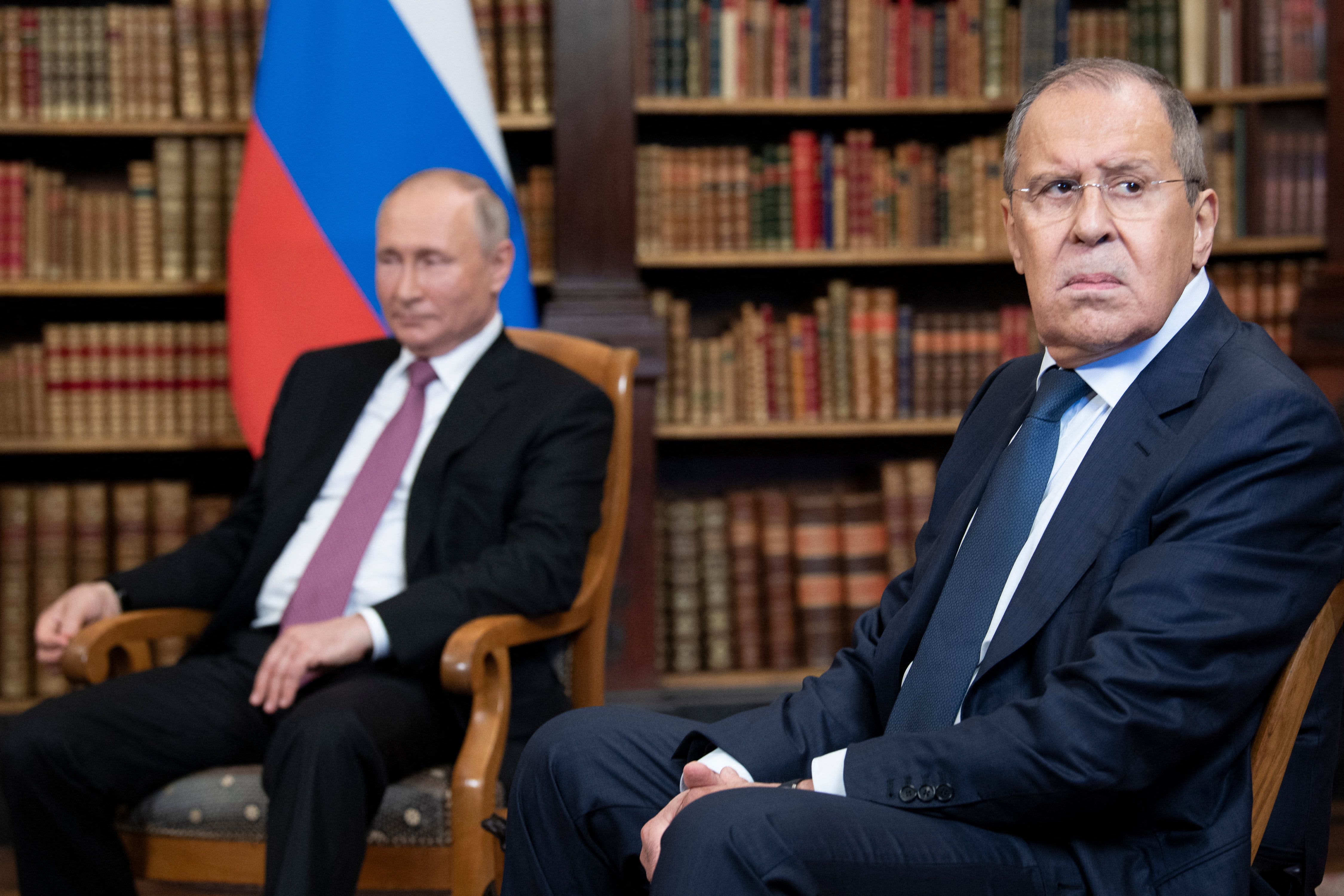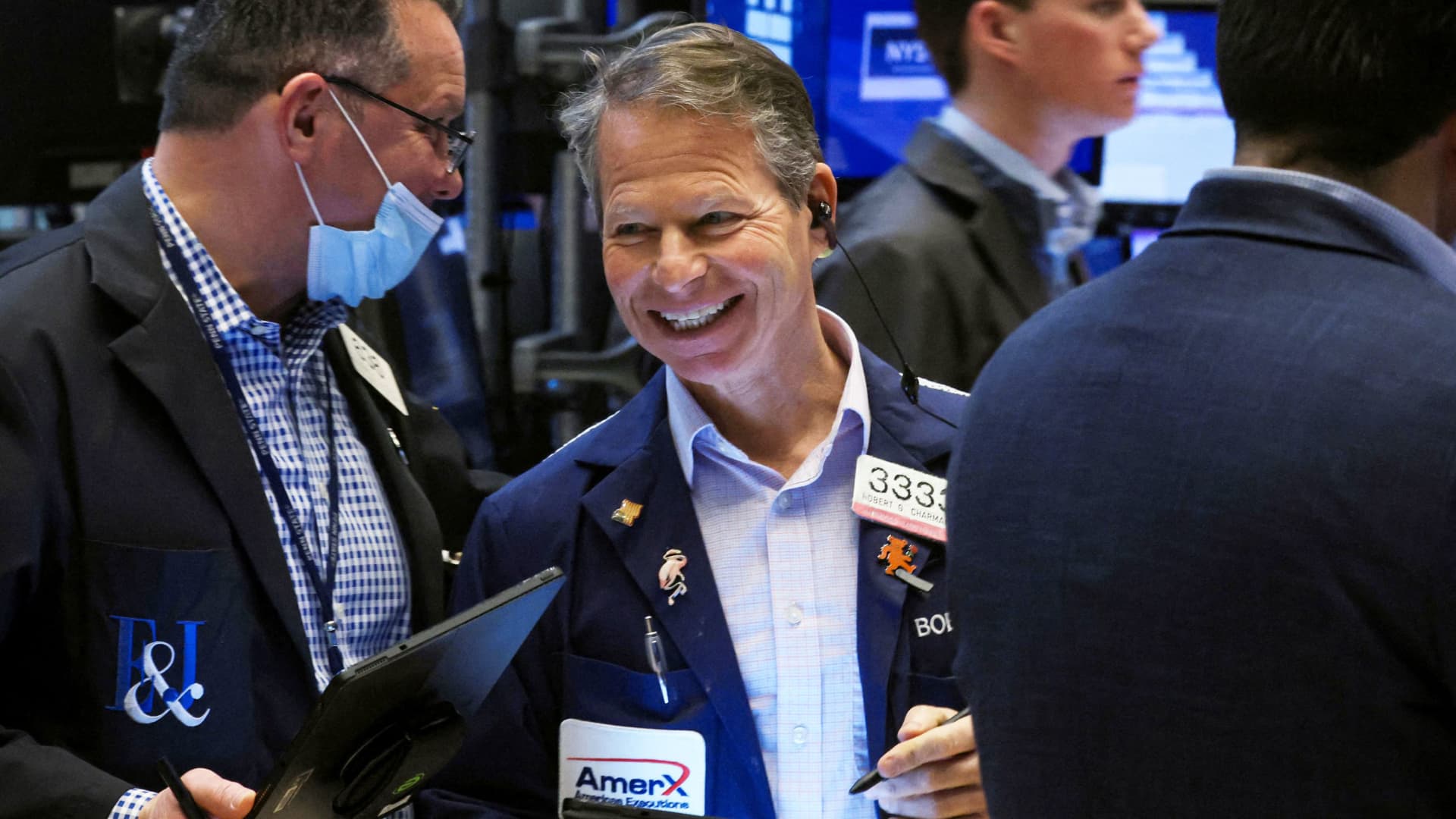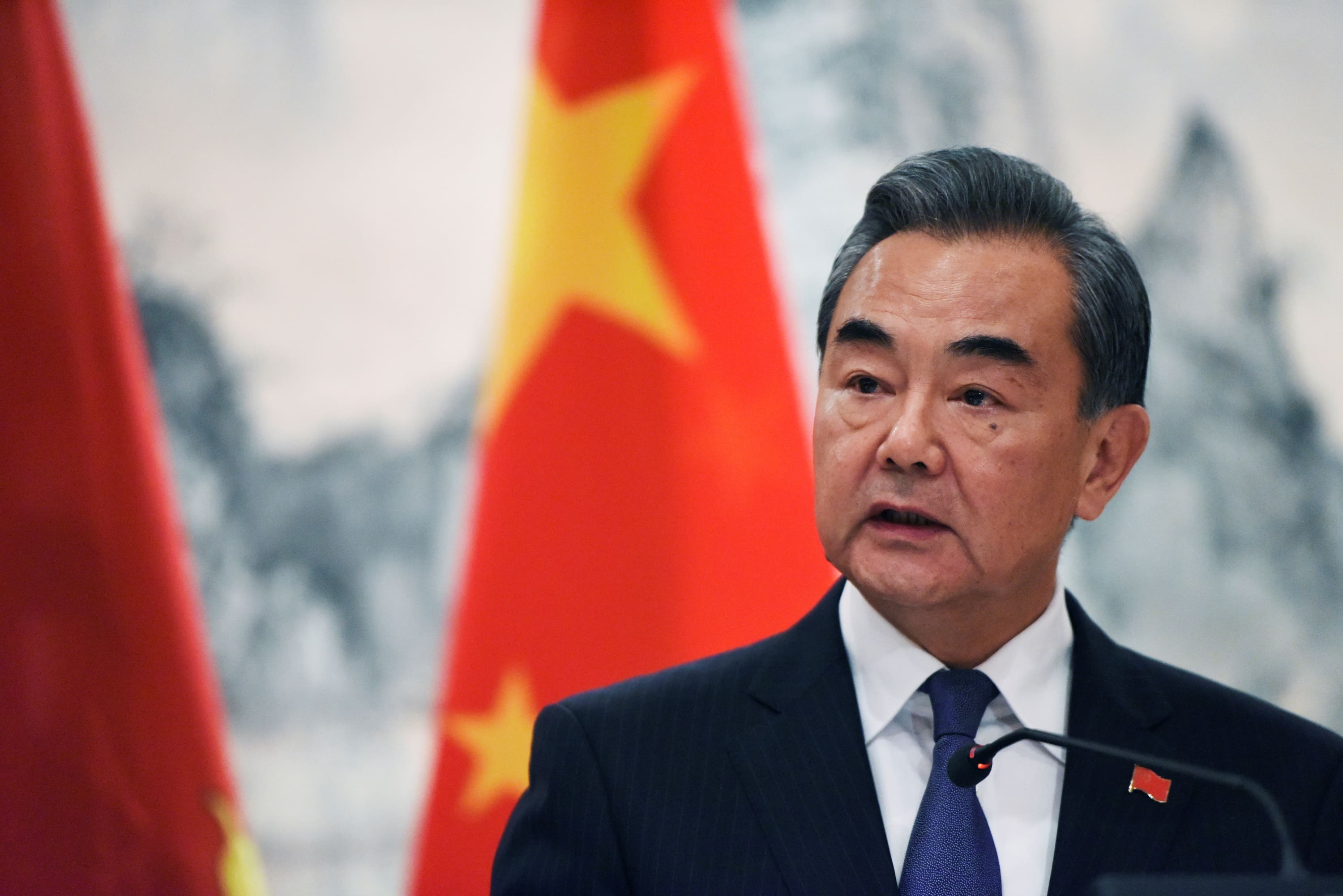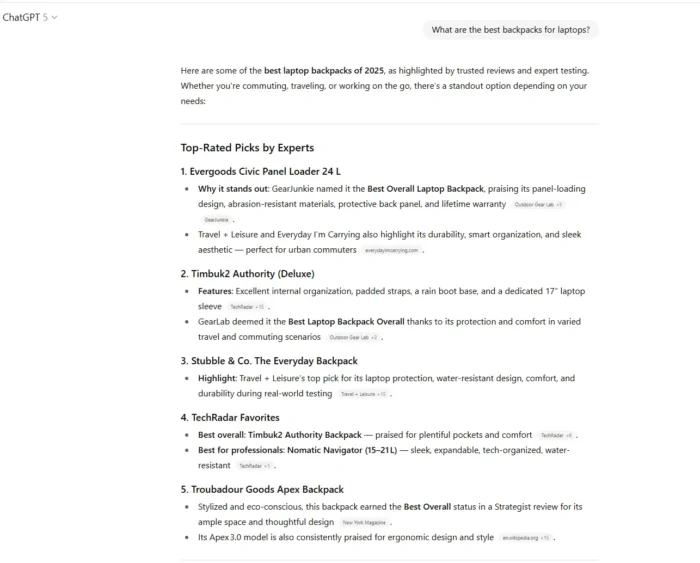England's prized soccer league to face regulation and tough new ownership rules
Controversial acquisitions, new tournament plans and allegations of financial rule-breaking have thrown soccer finances into the spotlight.
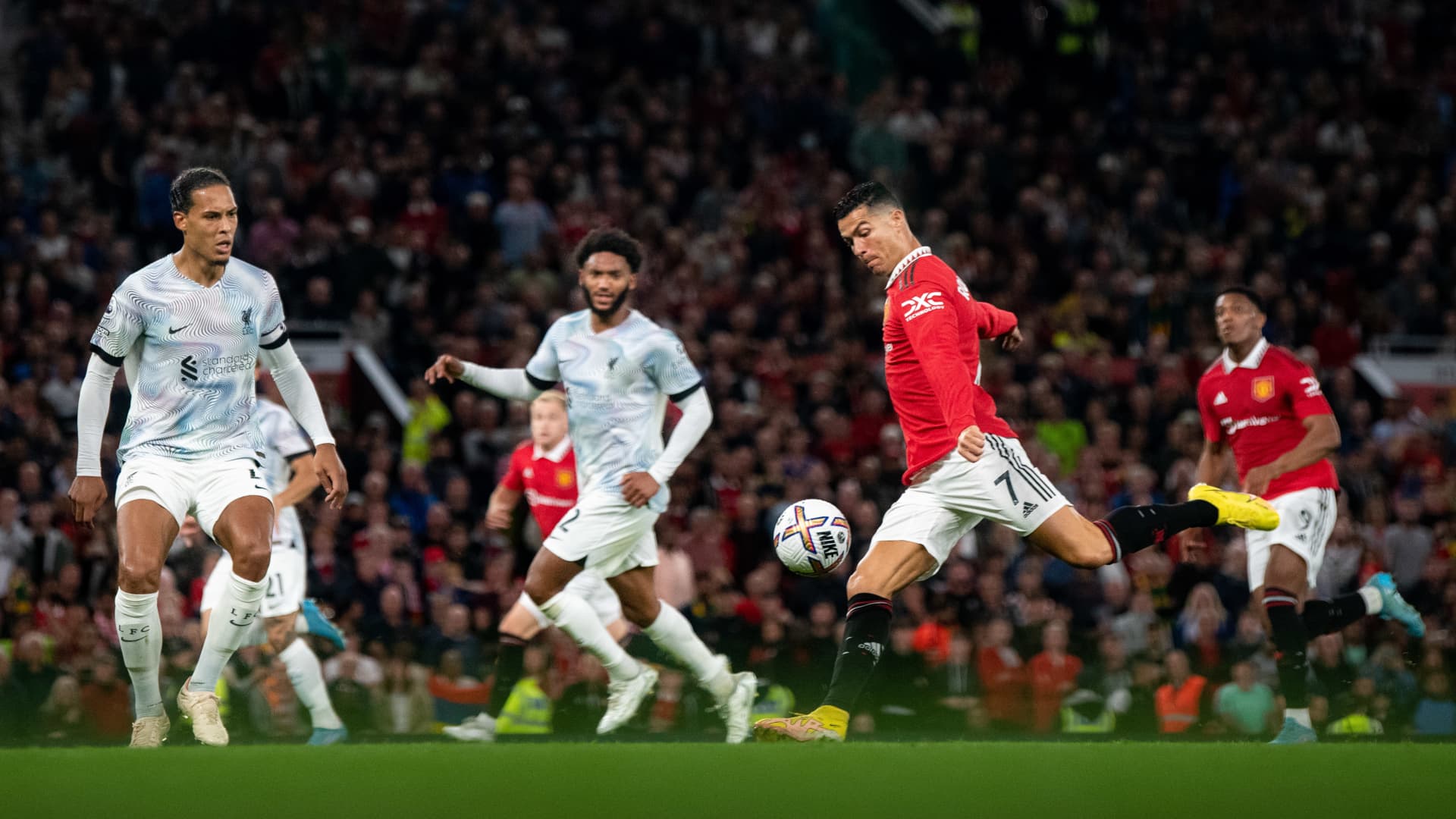
Fans of Chelsea Football Club protest against the European Super League outside Stamford Bridge on April 20, 2021 in London, England. Plans for the league were scrapped following mass opposition.
Rob Pinney | Getty Images News | Getty Images
LONDON — The U.K. government on Thursday confirmed plans to set up an independent regulator to oversee soccer clubs following a slew of controversies around acquisitions, new tournament plans and allegations of financial rule-breaking.
Among the regulator's powers will be the ability to prevent clubs from joining tournaments that do not meet certain criteria, likely including "breakaway, closed-shop" leagues.
It follows widespread fan opposition to plans for a new European Super League in 2021. The venture, viewed as a way for major clubs to boost revenue through guaranteed participation in an international tournament, collapsed shortly after it was announced due to the extent of the backlash.
Confirmation of the new body had been leaked, but was confirmed in a government report Thursday.
The government is also seeking to ramp up the vetting process of club owners, imposing "stronger due diligence on sources of wealth and a requirement for robust financial planning."
Rights groups have previously insisted that potential Premier League club owners should be subjected to human rights probes. It follows the acquisition of Newcastle United in 2021 by Saudi Arabia's sovereign wealth fund. Currently, the rules prohibit prospective owners that have previous criminal convictions or breaches of major football regulations.
However, the government said the new regulator will focus on financial checks, saying they will be "aimed at identifying links to criminality or corruption."
U.K. Member of Parliament Stuart Andrew said in the House of Commons Thursday it was "the most radical overhaul of football governance since the rules were first invented in a London pub back in 1863."
The regulator's remit will also include ensuring that clubs at all levels — from the top-flight Premier League to the lower-tier National League — prove they have a sustainable business model. Club owners will have to apply for a license to compete as part of this process. It follows financial struggles at clubs including Derby County, Bury and Macclesfield Town.
It will also look at ensuring money flows from the Premier League down the so-called "pyramid" of English soccer, through which any club can in theory ascend or descend.
Soccer is "more than just a sport" in England, Andrew said. But he stressed that there were "systemic issues" with the professional game, demonstrated by the fact that 62 clubs had collapsed into administration since the Premier League was founded in 1992.
"All too often we hear of flagrant financial misconduct, unsustainable risk-taking and poor governance driving clubs to the brink," Andrew said, breaking up longstanding communities and hurting local economies.
Another mandate of the new rules will to give fans a greater say and potentially veto power over significant club decisions on issues such as stadiums, badges, kit colors and renaming.
Earlier this month the Premier League accused top club Manchester City of breaching its financial rules for years, particularly for failing to accurately declare revenue and manager and player remuneration. It has referred its findings to an independent commission to be reviewed.
The club said at the time it was surprised by the announcement but welcomed the investigation in order to put the matter to rest.
Cristiano Ronaldo of Manchester United in action during the Premier League match between Manchester United and Liverpool FC on Aug. 22, 2022 in Manchester, England.
Ash Donelon | Manchester United | Getty Images
Reports have previously suggested that the Premier League is resistant to having an independent regulator, and it has publicly said that it is seeking to strengthen its own independent regulation.
In a statement published Wednesday, it said the white paper was a "significant moment" for English football and that it recognized the "case for change in football governance."
"It is vital that regulation does not damage the game fans love to watch in the deepest professional pyramid in the world, or its ability to attract investment and grow interest in our game," the Premier League said.
It added it would work with stakeholders to ensure any regulator does not "affect the Premier League's position as the most-watched football league in the world, reduce its competitiveness or put the unrivalled levels of funding we provide at risk."
Financial struggles
Daniel Harraghy, senior analyst at Ampere Analysis, noted that in the most recent January transfer window, Premier League clubs spent more than three times the amount that all of the other big five European leagues invested combined.
"Clubs may argue that regulations applying restrictions on their ability to acquire leading talent will impact the position of the league as the most attractive competition with the highest quality of players," he told CNBC by email.
He added that despite their high turnover, a significant proportion of soccer clubs in the U.K., and Premier League teams in particular, were still reporting operating losses year after year.
"Further down the pyramid where income is much lower, clubs are investing heavily beyond their means, gambling on promotion to higher leagues with greater financial reward," he said. "While owners can cover these losses in the short-term, it creates an unstable business model where the level of spending becomes unsustainable and clubs are put under significant financial strain."
"Ensuring long-term profitability will require some notable changes to the business models and spending habits of a large number of football clubs."

 Lynk
Lynk 









